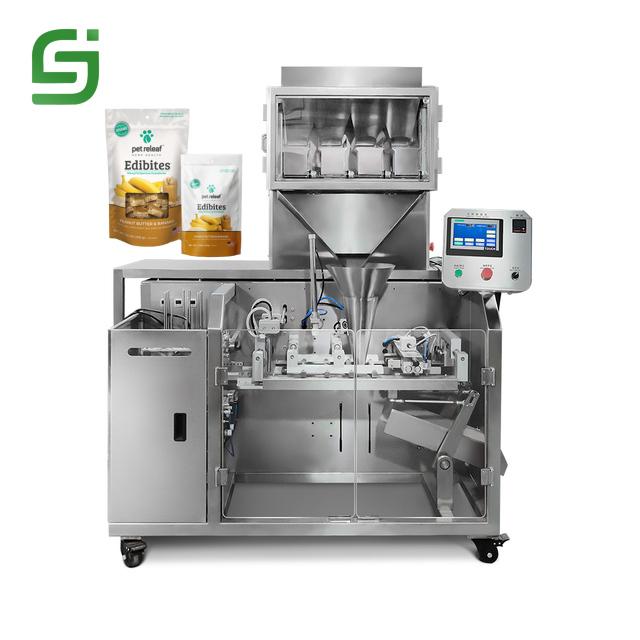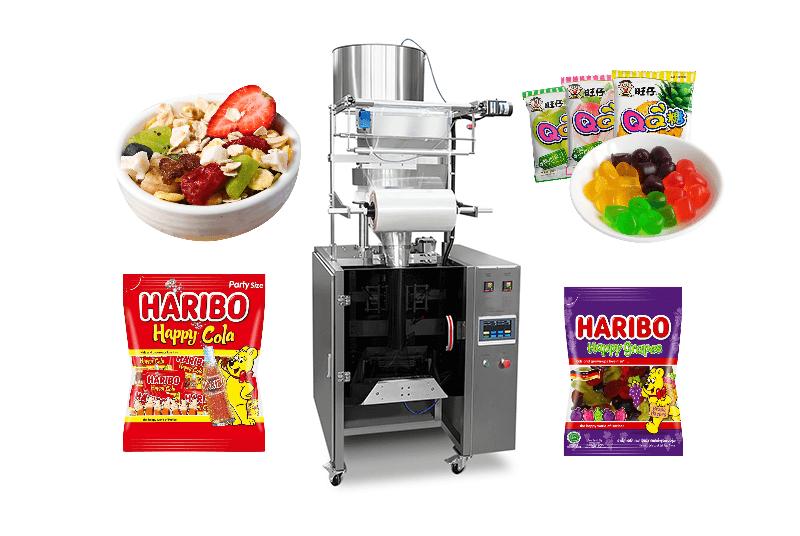Author:YISEN Pouch Packing Machine Manufacturer TIME:2024-09-26
Granular packing machines play a crucial role in various industries where precise measurement of materials is essential. These machines are designed to accurately measure and pack granular substances such as grains, powders, and seeds into bags or containers. The reliability and accuracy of these machines are critical to ensure consistency in product quality and quantity.

Granular packing machines utilize advanced technology to measure and dispense materials efficiently. They are equipped with sensors, scales, and filling mechanisms that enable them to weigh and pack materials with high precision. These machines are programmed to handle different types of granular substances, adjusting their operation according to the specific characteristics of the material being processed.
The measurement accuracy of granular packing machines relies on several key mechanisms. Load cells, which are sensitive transducers, play a crucial role in weighing the material as it flows through the machine. These cells convert the force exerted by the material into an electrical signal, which is then processed to determine the weight.
Additionally, volumetric fillers and augers are used in some machines to measure materials based on volume or rotational movement. While volumetric measurements may be suitable for certain granular substances, weight-based measurement systems are generally preferred for their higher accuracy and consistency.
Several factors can influence the accuracy of granular packing machines. The uniformity and flow characteristics of the material being packed play a significant role. Materials that are irregular in shape or have varying densities can pose challenges to accurate measurement, requiring adjustments in the machine's settings or calibration.
Environmental factors such as temperature and humidity can also affect the performance of these machines. Variations in environmental conditions may impact the flow and behavior of granular materials, potentially affecting measurement accuracy if not properly controlled or compensated for.
Advancements in technology have significantly enhanced the precision of granular packing machines. Modern machines are equipped with sophisticated software that allows for real-time monitoring and adjustment of packing parameters. Automated feedback mechanisms ensure that any deviations from the desired measurement are promptly corrected, maintaining consistency in packing quality.
Furthermore, integration with data analytics and control systems enables manufacturers to optimize packing processes based on historical performance data. This proactive approach not only improves accuracy but also enhances overall efficiency and reduces waste.

Granular packing machines find widespread application across various industries, including food processing, pharmaceuticals, agriculture, and chemicals. In each of these sectors, stringent regulatory standards often dictate the accuracy and reliability of measurement equipment. Compliance with these standards is essential to ensure product quality, safety, and consumer satisfaction.
Manufacturers of granular packing machines must adhere to industry-specific regulations and undergo rigorous testing and certification processes. Calibration procedures and regular maintenance are also critical to sustaining measurement accuracy over time, ensuring consistent performance throughout the machine's lifespan.

In conclusion, granular packing machines represent a pivotal technology in industries reliant on precise material measurement. Through advanced mechanisms and continuous technological innovation, these machines achieve high levels of accuracy in weighing and packing granular substances. Despite challenges posed by material variability and environmental factors, ongoing developments in sensor technology and automation promise further improvements in measurement precision. As industries evolve and demand for quality assurance grows, the role of granular packing machines in ensuring product integrity and compliance with regulatory standards will continue to expand.